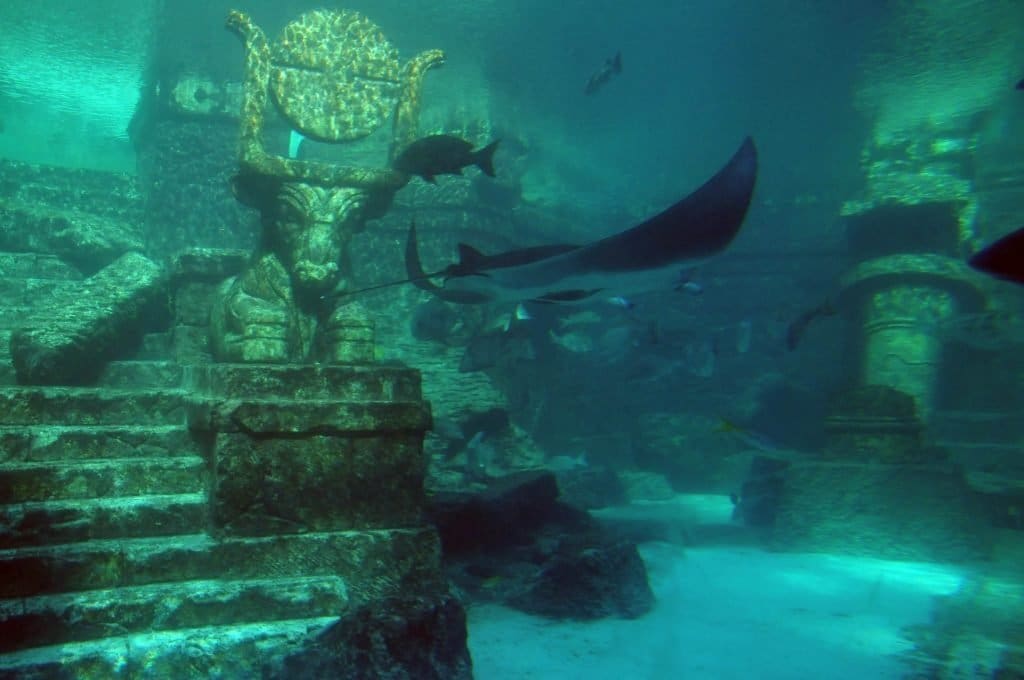In the vast annals of human history, there exists a mystery that has captivated the imagination of scholars, explorers, and dreamers alike. The enigma of Atlantis, a lost city submerged beneath the depths of the ocean, has been the subject of countless myths and theories. While some view it as a mythical utopia, others believe it to be a historical reality. In this article, we embark on a journey to explore the legend of Atlantis, delving deep into its origins, theories, and the ongoing quest to unveil its secrets.
Origins of the Atlantis Myth
The tale of Atlantis was first brought to light by the ancient Greek philosopher Plato. In his dialogues “Timaeus” and “Critias,” Plato described Atlantis as a powerful and advanced civilization that existed around 9,000 years before his time. He recounted the story as it was told to him by his ancestor, Solon, who heard it from an Egyptian priest during his travels.
According to Plato’s account, Atlantis was a sprawling island located beyond the “Pillars of Hercules,” which are thought to be the modern-day Strait of Gibraltar. It was a society of incredible wealth, technological prowess, and moral decay, ultimately leading to its catastrophic demise.
Also check: The Unsolved Mystery of the Great Pyramid of Giza
Theories Surrounding Atlantis
Geological Hypotheses
One of the prevailing theories regarding Atlantis is that it might have been a real place that met its end through natural cataclysms. Some geologists propose that the volcanic eruption of Santorini and the resulting tsunamis could have wiped out an advanced civilization on a nearby island. This event aligns with Plato’s description of a sudden and catastrophic submergence.
Location Speculations
Numerous theories abound about the possible location of Atlantis. Some suggest it could be in the Mediterranean, while others argue for the Caribbean or even Antarctica. The diversity of opinions stems from the lack of concrete evidence, leading to an ongoing search for archaeological clues.
Ancient Civilizations
Several scholars propose that Atlantis might be a symbol or amalgamation of several ancient civilizations, such as the Minoan culture on Crete or the lost city of Tartessos in southwestern Spain. These civilizations were indeed advanced in their time and could have inspired Plato’s narrative.
The Quest to Unearth Atlantis
The allure of Atlantis has never waned, prompting various expeditions and research efforts. Over the centuries, adventurers and archaeologists have scoured the oceans, examining potential underwater sites. One notable location explored is the Azores archipelago in the Atlantic Ocean, as it aligns geographically with Plato’s descriptions.
The Atlantis Enigma’s Impact
The legend of Atlantis continues to influence our culture, literature, and even science fiction. It serves as a testament to humanity’s enduring fascination with the unknown, the mysterious, and the lost. Whether Atlantis was a factual place or a symbol of Plato’s philosophical ideas, it remains a symbol of the uncharted realms of history.
Modern Research and Technological Advances
In recent years, modern technology has allowed researchers to employ cutting-edge methods in their quest to unravel the mystery of Atlantis. Sonar imaging, underwater drones, and advanced mapping techniques have made it possible to survey the ocean floor with greater precision. While no definitive proof of Atlantis has emerged, these tools have allowed scientists to gain valuable insights into our planet’s submerged history.
The Symbolic Significance of Atlantis
Beyond its potential historical significance, Atlantis has found a place in popular culture and literature. It represents a lost paradise, an advanced civilization that fell from grace due to its hubris. This narrative resonates with us, as we grapple with the fragility of our own modern world and the consequences of our actions on the environment.
Lessons from the Atlantis Myth
Whether Atlantis existed as a tangible place or not, the enduring mystery surrounding it imparts valuable lessons. It serves as a reminder of the impermanence of even the most advanced societies and the importance of humility in the face of nature’s forces. The allure of Atlantis beckons us to explore our own planet’s depths and uncover hidden stories buried beneath the sands of time.
The Future of Atlantis Research
As technology continues to advance, our ability to explore the Earth’s deepest oceans will only improve. The search for Atlantis will likely persist, drawing in researchers, adventurers, and enthusiasts from around the world. With each new discovery, we inch closer to solving the puzzle that has fascinated humanity for centuries.
In Conclusion
The Lost City of Atlantis remains one of the most intriguing and enduring mysteries in human history. Whether we consider it a myth or a historical reality, its significance lies not only in its existence but in the questions it raises about the past, the present, and the future. The allure of Atlantis continues to inspire curiosity, exploration, and the unquenchable human desire to uncover the hidden secrets of our world.
In our quest to understand Atlantis, we find ourselves drawn into the depths of the past, searching for answers that may forever remain elusive. Regardless of the outcome, the journey is a testament to our relentless pursuit of knowledge and the enduring power of the human imagination.






Leave a Reply